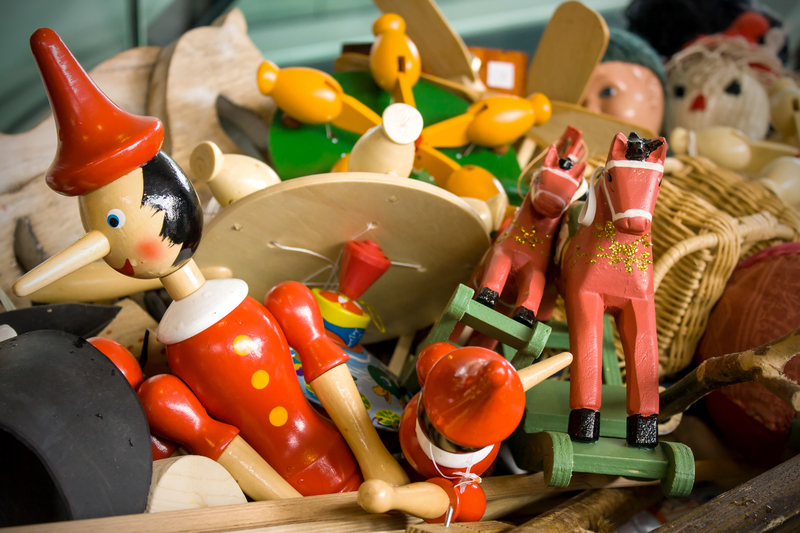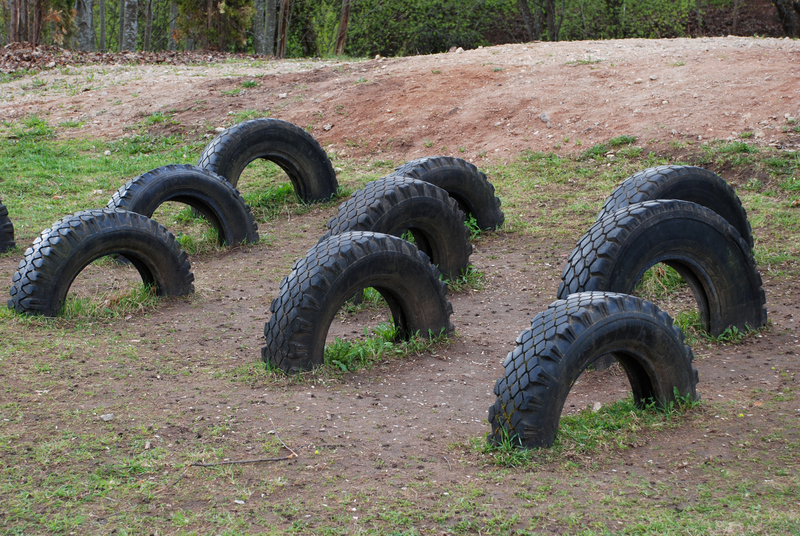Innovative Money-Saving Tips for Bulky Waste Items
Dealing with bulky waste items like old furniture, appliances, mattresses, and large yard debris can be a headache. Not only do these bulky waste items take up precious space, but the cost of disposal can quickly add up. Fortunately, with a little creativity and smarts, it's possible to minimize expenses, reduce environmental impact, and even earn some cash back. In this article, we'll share a comprehensive collection of innovative money-saving tips for bulky waste items that are both reader-friendly and SEO optimized.
Understanding Bulky Waste: What Are Considered Bulky Items?
Before diving into cost-cutting strategies, it's important to define what constitutes "bulky waste." Common examples include:
- Broken or outdated furniture (couches, chairs, desks)
- Large household appliances (refrigerators, washing machines, ovens)
- Mattresses and box springs
- Carpets, rugs, and padding
- Yard or garden waste (tree limbs, stumps, old fencing)
- Electronics such as televisions and computers
Municipalities often charge separate collection fees or have restrictive pickup schedules for these types of items, making cost-effective disposal solutions essential.

1. Rethink Before You Dispose: Repurpose and Upcycle Bulky Waste
Landfill shouldn't be your first (or only) option. Repurposing or upcycling not only saves money on disposal but also breathes new life into items that might otherwise be junked. Here are some creative ideas:
- Turn furniture into DIY projects: Old wooden bed frames or tables can be transformed into outdoor benches or planters.
- Upcycle appliances: A non-working washing machine drum makes a unique fire pit or garden planter.
- Mattresses: Use mattress springs for garden trellises or art projects, and cushioned foam for pet beds.
By thinking outside the box, you can delay costly disposal and even enhance your home or garden with inventive touches.
Quick Tip:
Browse websites like Pinterest or Instagram for DIY upcycling inspiration and tutorials tailored for bulky waste items. You'll be amazed at what others have created!
2. Sell or Donate Your Bulky Waste for Savings
Before treating bulky waste as mere garbage, consider its potential value. Many seemingly unusable items are sought after by upcyclers, hobbyists, or those in need.
How to Sell Bulky Items
- Online Marketplaces: List items for free or for sale on platforms like Facebook Marketplace, Craigslist, OfferUp, or Gumtree.
- Specialized Apps: Try apps dedicated to specific items, such as LetGo for furniture or Recycler for appliances.
- Local Community Boards: Post on neighborhood social media groups or bulletin boards. Sometimes, people gladly take items for free pick-up, saving you hauling costs.
Donation Outlets
- Charities: Many NGOs, such as Habitat for Humanity ReStores, Goodwill, or Salvation Army, accept donations of furniture and appliances.
- Churches or Shelters: These organizations may need items for their facilities or to support families in crisis.
Donating or selling decreases disposal costs while helping those in need or allowing someone else to extend the life of your item.
3. Leverage Bulk Waste Pick-Up Days and Events
Municipalities often organize free or discounted bulky waste collection days. Marking these on your calendar can deliver substantial savings versus arranging private hauling.
- Check local government websites for collection schedules and guidelines.
- Coordinate with neighbors to maximize pick-up volume if limits apply.
- Sort waste ahead of time so you're ready when events are announced.
Additional Tip:
Many towns hold "amnesty days" where they waive certain disposal fees--take full advantage to offload bulky waste items at zero or minimal cost!
4. Share Removal Costs with Neighbors or Friends
If your area lacks free or affordable bulky waste pickup, consider splitting removal costs with others. Pooling resources for a dumpster bin or junk removal service often results in significant price reductions per household.
- Coordinate with neighbors to schedule a shared pick-up or dumpster rental.
- Negotiate group rates with junk removal companies or local haulers.
Benefits:
- Reduces per-person cost significantly
- Encourages cleaner, clutter-free communities
- Often leads to better service and scheduling flexibility
5. DIY Hauling: Reduce Bulky Waste Removal Costs
If you have access to a vehicle or trailer, self-hauling can eliminate service fees. Most communities provide low-cost or even free drop-off at public waste transfer stations or recycling centers.
- Prepare your load: Disassemble items for easier transport.
- Confirm drop-off times and fees: Some centers require proof of residency or charge fees for non-recyclables.
- Recycle what you can: Metals, electronics, and mattresses often have dedicated recycling streams, which may be free or discounted.
Tip: If you lack a suitable vehicle, consider borrowing one or renting a truck for a short period. It's often cheaper than full-service removal.
6. Discover Specialized Recycling Programs for Bulky Items
Many bulky waste items--especially appliances and electronics--don't belong in landfills and are accepted by specialized recycling programs. Recycling helps the environment and can sometimes put cash back in your pocket through rebates or scrap value.
- Electronics: Programs like e-Stewards or Best Buy recycling collect old TVs, computers, and other electronics, sometimes for free.
- Appliances: Metal scrapyards pay by the pound for old washers, dryers, or refrigerators. Always remove hazardous fluids first.
- Mattresses: Firms such as Bye Bye Mattress operate collection sites where mattresses are deconstructed and recycled.
Recycling reduces landfill costs, may be free, and helps conserve resources.
7. Look for Manufacturer Take-Back or Trade-In Programs
Some appliance and electronics manufacturers offer take-back or trade-in incentives when you upgrade. This is a savvy way to dispose of bulky waste items at little or no cost:
- Retailer haul-away: Major retailers like Home Depot, Lowe's, or Best Buy will remove your old item for free or at a nominal fee when you buy a replacement.
- Trade-in rebates: Some brands and stores offer rebates or discounts if you return old equipment upon purchasing new.
- Eco-responsible disposal: These programs often prioritize recycling and proper hazardous material handling.
Pro Money-Saving Tip:
Always ask about take-away or trade-in programs at the point of purchase--even modest fees are often far less than stand-alone disposal costs!
8. Creative Disposal: Host a Community Bulky Waste Swap
Organize or participate in a local bulky waste swap event. These gatherings invite residents to drop off unwanted items and pick up things they need--for free.
- Promote sustainability and reuse: Items are given a second life, reducing the burden on municipal waste systems.
- Zero cost solution: You save on disposal fees and possibly find something useful for your home.
Tip: Work with local councils or neighborhood groups to arrange and publicize these swap events, increasing both participation and impact.
9. Avoid Fines and Hidden Fees with Proper Preparation
Improperly discarded bulky waste items can lead to fines or extra handling charges. To save money, follow best practices for legal, safe disposal:
- Check local regulations regarding curb placement, accepted items, and scheduling
- Disassemble and bundle items where required
- Label items clearly for sanitation crews
- Remove hazardous elements (fluids, batteries, sharp objects) as needed
*An ounce of preparation can save a pound of penalty!*
10. Bonus Hack: Monetize Your Bulky Waste with Creative Ideas
Don't just spend less--turn your bulky waste into income! If you're handy or entrepreneurial, try these approaches:
- Host a yard sale: Even worn or dated items may fetch a price, especially to DIYers and upcyclers.
- Sell parts online: Scrap metal, appliance parts, or electronics components can have real value on eBay or other marketplaces.
- Create art or functional pieces: Turn industrial materials from furniture or appliances into art and sell at local markets.
By thinking creatively, you may not only offset disposal costs but actually benefit financially from items you no longer need.
Final Thoughts: Saving Money and the Planet
Disposing of bulky waste items doesn't have to be expensive or environmentally unfriendly. With a mix of innovative money-saving tips for bulky waste items, community collaboration, savvy recycling, and a dash of DIY spirit, you can manage big clutter without breaking the bank. The tips above not only help save money but also contribute to a greener, healthier community. Next time you face a pile of unwieldy junk, remember: every item represents a new opportunity--for thrift, creativity, and sustainability.

Frequently Asked Questions About Bulky Waste Disposal
-
What is considered a "bulky waste item"?
Typically, any item too large for standard garbage bins--including furniture, appliances, mattresses, and large electronics. -
How can I dispose of bulky waste items for free?
Utilize city-sponsored collection events, donate to charities, participate in swaps, or explore take-back programs. -
Is it possible to make money from bulky waste?
Yes! Sell reusable items, recycle scrap materials, or upcycle for resale.
Conclusion
Don't let bulky waste disposal drain your wallet. Implement these money-saving tips for bulky waste items and discover practical, cost-efficient, and sometimes lucrative ways to clear out big clutter--all while supporting sustainability and your community.
```